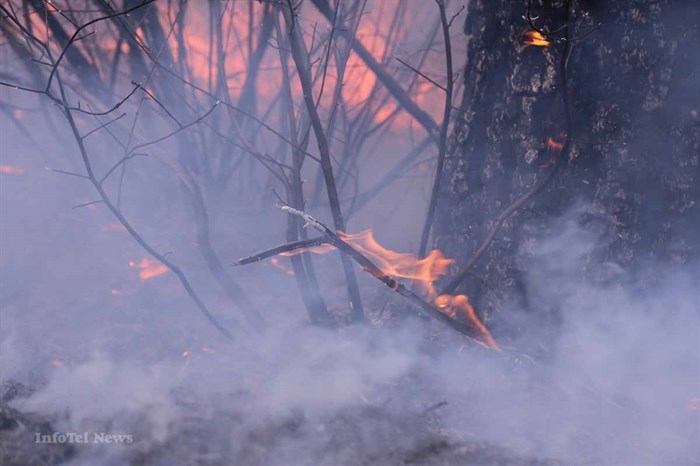
Image Credit: File Photo
December 13, 2017 - 5:00 PM
VERNON - Last summer’s wildfires may be out of sight and out of mind for most people, but some municipalities are already looking ahead to next year, and the years after that.
The North Okanagan Regional District has applied for a roughly $50,000 grant from the province to update its Community Wildfire Protection Plan, which was last done in 2008.
“The very recent fire season of 2017 in the Central and Cariboo Region reinforced the need for increased planning that includes fuel reduction, protected evacuation corridors and safe communities, including safe sanctuaries for temporary housing of evacuees without having to move people twice,” protective services manager Alastair Crick says.
He says the effects of changing climate patterns and increased fuel load from mountain pine beetle kill mean new hazards are present.
“We need to go back and review our current plan, reassess and update our needs,” Crick says.
He says the North Okanagan is a region where many people live in rural, forested areas, which can increase risks in the event of an interface wildfire.
“With our typically hot and dry summers — and this summer we had a drought from May onwards with almost no rainfall at all — if there is an ignition source, whether through human activity, accident or a lightning strike, there is always the potential,” Crick says.
While the North Okanagan fared lightly this summer with wildfire activity, its neighbours did not. Wildfires impacted the communities of Joe Rich, Monte Lake, Ashcroft and Lake Country, among others. Thousands of people in B.C. were displaced by the fires.
“Certainly, everyone’s got wildfire risk on their mind,” Crick says.
He says if they know where the hazards are, they can mitigate them. Planning evacuation routes and thinning out woody debris in forested areas are just some of the ways planners reduce risks.
To contact a reporter for this story, email Charlotte Helston or call 250-309-5230 or email the editor. You can also submit photos, videos or news tips to the newsroom and be entered to win a monthly prize draw.
We welcome your comments and opinions on our stories but play nice. We won't censor or delete comments unless they contain off-topic statements or links, unnecessary vulgarity, false facts, spam or obviously fake profiles. If you have any concerns about what you see in comments, email the editor in the link above.
News from © iNFOnews, 2017